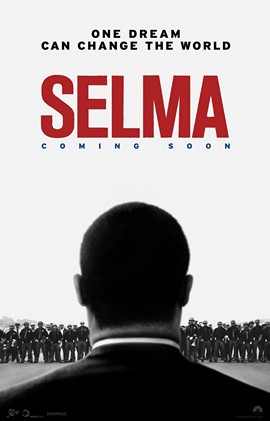 Lifetime Television. Those two words probably conjure up images of “Wife Swap” marathons and delightfully awful made-for-TV movies. You might even recall its now-defunct slogan “Television for Women,” even though it was dropped in 2006.
Lifetime Television. Those two words probably conjure up images of “Wife Swap” marathons and delightfully awful made-for-TV movies. You might even recall its now-defunct slogan “Television for Women,” even though it was dropped in 2006.
But there’s something else that sets Lifetime apart. At least with respect to its movies, Lifetime is more than just television for women: Lifetime is also television made by women.
Lifetime estimates that approximately half of the directors of their notoriously kitschy movies are women. In mainstream Hollywood, only nine percent of the top 250 box office movies were directed by women in 2013.
So, good for Lifetime. It seems to be leading the pack in having equal gender representation at the helm of its films.
But Lifetime doesn’t deserve a cookie for just having women direct. That’s the bare minimum. It simply doesn’t make sense for a network aimed at women to only pay lip service to the idea of women in charge.
Maybe mainstream film will follow Lifetime’s lead and get more women in the director’s chair. But it’s unlikely that will happen just because of Lifetime. And that’s because of the nature of Lifetime movies. Beginning with the seminal classic “Memories of Murder” in 1990, Lifetime movies are now synonymous with ridiculous plots, poor acting and farcical melodrama.
A good chunk of Lifetime movies center around one of two themes: crazy sociopathic women and crazy sociopathic men. Either every man you meet is a serial killer who’s going to tie you up in a basement or every man you meet is going to have a woman who is obsessed with him and therefore set on knocking off all her self-perceived competition.
Movies that do not center on the fact that everyone has a murderer lurking within or near them fall tend to have much more random themes.
If you ever wondered what it would be like if your teenage son were addicted to internet pornography, just watch “Cyber Seduction.” If you want to want to know about the life of Anna Nicole Smith, watch “Anna Nicole.” Lifetime has become a refuge for the most absurd storylines. There’s no value; there is nothing to learn from a Lifetime movie. There isn’t much to be gained from anything that Lifetime puts out, aside from maybe entertainment value.
These are the things Lifetime is known for. And we’re supposed to be jazzed that this is the only place that female directors and their male counterparts are getting equal amounts of work?
If that’s the case, then the bar has been set so low that we’re tripping over it. Congratulations, women are directing movies! But they’re made-for-TV movies. And they’re made-for-TV Lifetime movies at that. Kudos on getting to scrape the bottom of the quality film barrel.
At the very least, it’s a step in the right direction. But there need to be more steps. In the Academy Awards’ 87 years of existence, there have only ever been four female nominees for Best Director, and only one of the nominees actually won the Oscar.
Not only are the women not winning, they’re not being nominated. Granted, there is a relatively small number of female directors, but those directors are directing quality films. A few 21st century examples of women being snubbed: Ava DuVernay for “Selma,” Kathryn Bigelow for “Zero Dark Thirty” and Loveleen Tandan who co-directed “Slumdog Millionaire” (side note: Tandan’s co-director, Danny Boyle, was not only nominated for Best Director, but he won the award).
So come on. Lifetime is just the beginning. It shouldn’t be held up as a beacon of equality when there’s so much further to go. Lifetime doesn’t get a cookie for using women to create “Television for Women.” But maybe it can have one if it manages to kick off a trend in the rest of the film industry.





